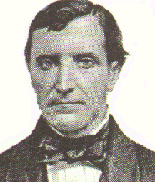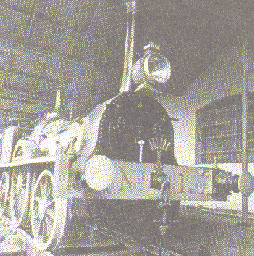
![]()
Irineu Evangelista de Souza, Viscount and Later Baron of Mauá, was born of a humble family in Arroio (Rio Grande do Sul State) 1813. When his father died, he left home at the age of 11 to work in commerce in Rio de Janeiro, where he gained great experience and learned English at the establishment of Richard Carruthers, a British subject.
 |
In 1844, he was self-employed in the textile, but his farsightedness led him to the industry were he perceived that the future economic development of the country lay. In 1845 he purchased a modest workshop in the location of Ponta de Areia, Niterói and there installed a foundry and shipyard which by the following year was employing 300 workers. At the height of its activity the Company had 1,0000 workers and constructed ships (72 in all), cranes, windlassed, sugar mills and pipes for the Rio de Janeiro Gas Illumination Company, also founded by him. |
The organization of the
Amazonas Navigation Company and construction of a submarine
cable ship inaugurated by Emperor D.Pedro II were attributed
to him. Mauá was also the founder of the second Bank of
Brazil, the present one. Formerly, a Bank of the same name
had failed in 1829. He founded and was president of the Mauá
Bank, MacGregor & Co, which within a short time became
the most important banking establishment. However his name
definitely entering history with the construction of the first
Brazilian Railway,
the Mauá, inaugurated on 30th April 1854, Mauá also
contributed to the founding of the Recife-São Francisco
Railway and the Santos-Jundiaí Railway. He assisted in the
institution of the D. Pedro Railway and the construction of
the São Francisco Railway in Bahia State, In a way or
another, Mauá was involved in any railroad project in
Brazil. In 1867 Mauá commercial fortune was the greatest in
the country, representing assets calculated at
105,186:879$000. The notorious financial crisis which hit
Brazil from 1864 onward, a reflex of the European situation
and caused by bad management of domestic affairs, led many
firms, industries and banks into failure and among them the
Mauá group. In spite of precautionary measures, the many
commitments assumed and the always lack of assistance on the
part of government obliged Irineu Evangelista de Souza to
apply for a moratorium on his debts in 1875. Considering
also, that most of the government idea at that time was
against any kind of personal liberalism (Visconde
de Itaboraí).
In the illustrious Brazilian's collosal accomplishment, the
highest integrity was always taken for granted. His creditors
were paid with the proceeds of the sale of his assets and
property and even of his personal belongings such as houses,
jewels, luxury articles, etc.
Mauá promoted the first surge of Brazilian industry an
underwent the contingencies of all his forerunners. He was
victimized by the country's culture and heritage. A country
that had just left slavery times towards beliefs conception
in all-state solutions.
The first Brazilian Railway man died in 22nd October, 1889 in
Petrópolis.
|
| The Baroneza, was the first locomotive to operate in Brazil, in the E.F.Mauá and its name was a homage to Mauá's wife |
![]()

